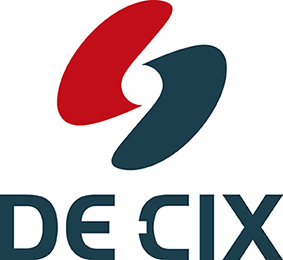Why Not Build Your Own Internet?
Harald A. Summa from DE-CIX & the eco Association looks at the needs of future digital business – the data, the infrastructure, and the mind game.

© Igor Kutyaev| istockphoto.com
Is my own company actually digitalized? If you had asked me this question five years ago, the answer would have been a resounding “yes”. After all, DE-CIX – with its flagship Internet Exchange in Frankfurt and many more across the globe – is the very foundation of digitalization. We support businesses with their digitalization. How could we succeed in this if we were not ourselves role models and thus, as a matter of course, digitalized?
However, if you had asked me the same question three years ago, my answer would have been somewhat more modest. “We are partially digitalized,” I would have said, “but we still have some significant challenges to overcome.” Another three years on, and many a successfully overcome hurdle later, my honest answer is: “we’re really just getting started with our own process of digitalization.”
Until the time has come that I can again say “yes” with conviction – a time when not only is DE-CIX digitalized, but also the many companies whose data and interconnections make up the exchange are as well – it will probably still take a little while. Honest analysis shows that we are still in the middle of the transformation process.
Digitalization has less to do with technology than with people
The linchpin of digitalization is data. Predicting the data volumes of the next few years is no easy task, and forecasts are subject to a certain degree of uncertainty in view of technologies like 5G, the Internet of Things, and autonomous vehicles. But clearly, there will be a lot of data. Vehicles used for autonomous driving tests produce a terabit of data per day, and that doesn’t even include upcoming connected mobility and entertainment services. To put this into perspective: The cumulative amount of data currently being transmitted across all DE-CIX sites worldwide is 15 terabits per second.
Tomorrow’s data volumes are elusive. Exponential growth, despite the experience of the Covid-19 pandemic, remains inconceivable for the human mind. This often makes digitalization less of a technical process – the technology we are using to build the Internet of tomorrow is already largely available today – and more of a mind game: Digitalization starts with getting clear in our heads which processes we want to and can digitalize. And what we need in order to do this.
The need for digital infrastructures is increasing enormously
Digitalizing processes always means transferring data. As the volume of data increases, so, too, do the requirements for the digital infrastructure needed to handle it. The clouds as we know them today are a solution that is well suited as an intermediate step. In the long term, however, and with increasing differentiation of the offerings (I anticipate that in ten years’ time companies will be able to choose from the services of 5,000 to 6,000 cloud service providers), the offerings will have to become much more flexible.
Our demand for data centers will increase enormously. The EU Commission assumes that we will need around 10,000 data centers in the EU in 2030. The number of satellites in low Earth orbit, through which data is distributed by laser to various points on the Earth’s surface, will increase to as many as 60,000. And we will have many more Internet Exchanges than we have today: The very sensible idea of keeping local traffic local ensures that many regional Internet Exchanges will be created, in addition to the very large national ones.
Flexible interconnection services are needed to work with large amounts of data
Today, companies can rent supercomputers by the hour to process large amounts of data quickly. But how does the data get there? If, for example, a company in Barcelona, Spain, wants to process 150 terabits of data on a supercomputer in Jülich, Germany, currently it often boils down to transporting the data by road freight, because the corresponding offers for digital data transmission are too slow, costly, and inconvenient. Finding straightforward solutions to this problem and offering companies fast data connections at short notice is essential if they are to make progress with digitalization.
This kind of challenge – actually, less of a mental than a technical problem – is something we tackle at DE-CIX with appropriate interconnection services. As part of Gaia-X, we are also working together with other providers to develop the digital infrastructure of tomorrow. The goal is to ensure that users are not slowed down by technical barriers such as a lack of standards, excessive latency, or insufficient bandwidth when working with their data. Different players from the finance or mobility industries, for example, can come together in Data Spaces where they can quickly share and process data.
The issue of sovereignty is very important here. Companies should not only be able to make sovereign decisions about who gets what kind of usage rights, but also about the pathway along which their data travels. This is not possible on the public Internet, which consists of 55,000 autonomous networks. But the sensitive applications of the digitalized future require just that. Companies must therefore invest in a sufficiently dimensioned, secure, and flexible infrastructure. They need, so-to-speak, “their own Internet”. This is something they can’t get out of the socket – they have actively build it themselves.
Harald A. Summa has been Chief Executive Officer (CEO) of DE-CIX since 2003. Harald A. Summa is also CEO of DE-CIX International GmbH and of DE-CIX North America Inc. DE-CIX is the world's leading Internet Exchange operator. DE-CIX’s Internet Exchange in Frankfurt has the highest data throughput worldwide. Harald A. Summa is also the initiator and CEO of eco – Association of the Internet Industry.
As a co-initiator, Harald A. Summa was involved in the foundation of the European associations EURO-ISPA and Euro-IX, whose particular aim is to improve the European Internet infrastructure. Harald A. Summa was also until 2018 a core member of the Advisory Board for the “Young Digital Economy” of the Federal Ministry for Economic Affairs and Energy, which seeks to provide stimulus for the future of Germany’s digital economy and for the development of new digital technologies, and a member of the Advisory Board for the “Digital Economy” in North Rhine-Westphalia.
Summa has been active in management and consulting in the Internet and IT industry for more than 30 years, during which time he has spent more than 20 years managing various companies. He was a lecturer at the University of Cologne in Applied Informatics for a period of 10 years. Summa has written many specialist articles and given lectures on the topics communication, marketing, and sales. Summa’s numerous publications, as well as TV and radio appearances focus in particular on the topics of the Internet, security, and e-commerce.




